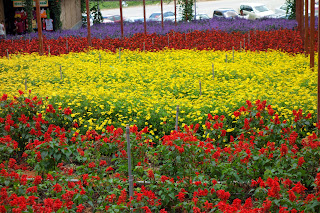This month at Pasture Living, we're doing a series on "I Care for Our Planet!" in conjunction with us being nominated as a finalist in the "eco challenge" category of the Singapore Blog Award 2013.
What are Essential Oils?
Essential oils are highly-concentrated plant extracts that have been in use since the beginning of time. The wise men gave Mary and Joseph frankincense and myrrh when they visited baby Jesus. There are many references of essential oil usage in the Bible and it is amazing how God creates the life blood of plants for healing. It is important to get high quality essential oils, not massage or perfume oils. The best essential oils come from plants that grow in their indigenous locations, made from wild-crafted or organic plants, is not adultered in any way, have nothing added to them (fragrance, fillers, etc.), and extracted using steam distillation at low temperature and pressure.
There are many essential oils labeled as "pure" and "therapeutic" in the market. Unfortunately, that doesn't mean good quality. The problem is that there is no regulatory body that provides certification standard for essential oils and so we have to do our research before we purchase essential oils. 100% pure therapeutic grade A essential oils are supposedly safe for internal consumption and are expensive because they are costly to produce. If they don't label so and if the price is too good to be true, then most likely they are not the purest.
Some reputable brands are:
Native American Nutritionals
Young Living (available in Singapore)
Mountain Rose Herbs
doTerra
Aura Cacia (you can buy this brand on iHerb)
Guidelines on Using Essential Oils (source)
- Be sure to use only 100% pure therapeutic-grade essential oils and follow all label warnings and instructions.
- If redness or irritation occurs when using essential oils topically, apply a vegetable oil such as fractionated coconut oil or olive oil to the affected area. - Essential oils should not be used in the eyes, inside the ear canal, or in open wounds.
- In the event of accidental contact with the eye, dilute with vegetable oil NOT water.
- Do NOT consume an essential oil internally unless labeled with a Supplement Facts box with specific dietary supplement use instructions and warnings.
- Discontinue the use of an essential oil if you experience severe skin, stomach, or respiratory irritation or discomfort.
- When using on children, apply a very small amount of oil to test skin or other sensitivity.
- Do not use oil on a child's hand as they may transfer to their eyes or mouth.
- Consult your physician before using essential oils if you are pregnant or under a doctor's care or have other safety questions regarding essential oils.
Click here on the basic essential oils I keep at home and how I use them.
I would add that it is best to dilute essential oils with carrier oils such as olive oil or sweet almond oil. Use extra caution when using essential oils with babies. Undiluted essential oils are very strong and may cause irritation and burns if used directly on baby's skin. I usually pour some carrier oils on my palm and then put a few drops of essential oil and mix it together.
What is your favorite brand of essential oils?

Hi do you know where could I buy clay powder and herb powder like dead sea mud powder, pink clay, kaolin, chamomile powder, .... that's available in Singapore? Thanks so much
ReplyDelete